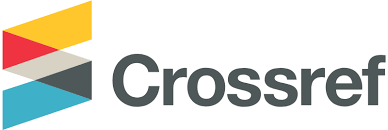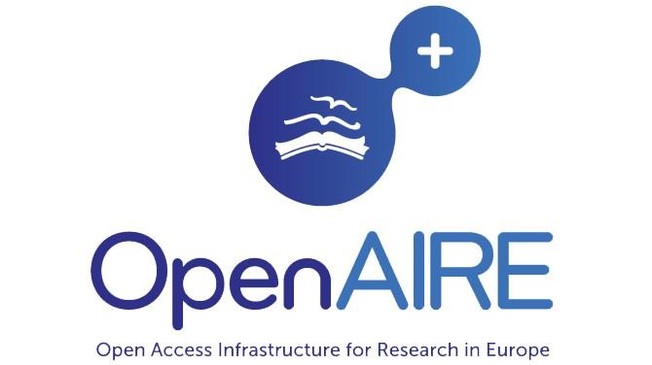PENGEMBANGAN E-LEARNING BERBASIS PBL BERBANTUAN GOOGLE SITES PADA KONSEP PEMANASAN GLOBAL
DOI:
https://doi.org/10.21009/03.1201.PF08Abstract
Abstrak
Perkembangan pesat Teknologi, informasi dan komunikasi yang terjadi pada abad ke-21, telah mengubah pola kehidupan masyrakat secara signifikan. Para siswa dan guru memanfaatkan era ini untuk membantu mereka dalam belajar dan mengerjakan tugas. Studi pendahuluan telah dilakukan dengan menyebar google form ke siswa SMA, sebanyak 78,6% siswa menyatakan bahwa mereka lebih sering menggunakan internet sebagai sumber belajar. Pada era digitalisasi ini, E-Learning merupakan salah satu media krusial yang membantu jalannya proses pembelajaran. Pemecahan masalah terus menjadi isu yang krusial terutama dalam bidang pendidikan pada abad ke-21. Siswa harus mulai terbiasa dengan penalaran ilmiah dan pemecahan masalah, kedua hal tersebut telah diakui sebagai fitur dalam literasi sains karena meningkatnya masalah lingkungan dan teknologi dalam pendidikan sains. Berdasarkan hal itu, Penelitian ini dirancang menggunakan model ADDIE dengan tujuan untuk mengembangkan E-Learning berbasis problem based learning (PBL) pada konsep pemanasan global sebagai media yang valid untuk digunakan sebagai bahan ajar. Validasi media telah dilakukan kepada ahli dan didapatkan hasil rata-rata total sebesar 88% artinya media termasuk kategori sangat valid untuk digunakan sebagai bahan ajar.
Kata-kata Kunci: E-Learning, PBL, Pemanasan Global.
Abstract
Development of technology, information and communication in the 21st century has significantly changed the habit of community life. Students and teachers use this opportunity to help them do their studies and assignments. Preliminary studies have been carried out by distributing Google forms to high school students, 78.6% of students stated that they more often use the internet as learning resources. This era of digitalization, E-Learning is one of the crucial media that helps learning process. In the 21st century, problem solving becoming crucial issue, especially in education field. Students should become familiar with scientific reasoning and problem solving, both of them have been recognized as features of scientific literacy due to the environmental and technological issues in science education. Based on that, this study is being designed using the ADDIE model with the aim of developing PBL-based E-Learning of global warming as valid media to be used as teaching material. Media validation has been carried out to experts and obtained average total result is 88% meaning that the media is in a very valid category to be used as teaching material.
Keywords: E-learning, PBL, Global Warming.
References
[2] S. E. Saleh, “ Critical Thinking as a 21st Century Skill : Conceptions, Implementation and Challenges in the EFL Classroom,” European Journal of Foreign Language Teaching, 2019.
[3] R. Lavi, M. Tal, Y. J. Dori, “Perceptions of STEM alumni and students on developing 21st century skills through methods of teaching and learning,” Studies in Educational Evaluation, 2021.
[4] J. C. González-Salamanca, O. L. Agudelo, J. Salinas, “Key Competences, Education for Sustainable Development and Strategies for the Development of 21st Century Skills, A Systematic Literature Review,” Sustainability, 2020.
[5] H. Rodrigues et al., “Tracking e-learning through published papers: A systematic review,” Computers & Education, pp. 87-98, 2019.
[6] D. Al-Fraihat et al., “Evaluating E-learning systems success: An empirical study,” Computers in Human Behavior, pp. 67-86, 2020.
[7] K. Mahalakshmi et al., “E-Learning during Lockdown of Covid-19 Pandemic: A Global Perspective,” International Journal of Control and Automation, pp. 1088-1099, 2020.
[8] W. A. Cidral et al., “E-learning success determinants: Brazilian empirical study,” Computers & Education, pp. 273-290, 2018.
[9] J. Park, J. Song, “How Is Intuitive Thinking Shared and Elaborated During Small-Group Problem-Solving Activities on Thermal Phenomena?,” Research in Science Education, 2018.
[10] C. Sun et al., “Towards a generalized competency model of collaborative problem solving,” Computers & Education, 2020.
[11] M. Kim, J. Pegg, “Case analysis of children's reasoning in problem-solving process,” International Journal of Science Education, pp. 1-20, 2019.
[12] A. C. Graesser et al., “Advancing the Science of Collaborative Problem Solving,” Psychological Science in the Public Interest, pp. 59-92, 2018.
[13] M. Fidana, M. Tuncel, “Integrating augmented reality into problem based learning: The effects on learning achievement and attitude in physics education,” Computers & Education, 2019.
[14] United Nations, “Do you know all 17 SDGs?,” 2023, [Online]. Available: https://sdgs.un.org/goals.
[15] T. Plomp, A. E. Kelly, N. Nieveen, “An Introduction to Educational Design Research,” Netherlands: SLO Netherlands institute for curriculum development, 2010.
[16] R. M. Branch, “Instructional Design: The ADDIE Approach,” New York: Springer, 2010.
[17] R. I. Arends, “Learning to Teach,” New York: McGraw-Hill Companies, 2012.




